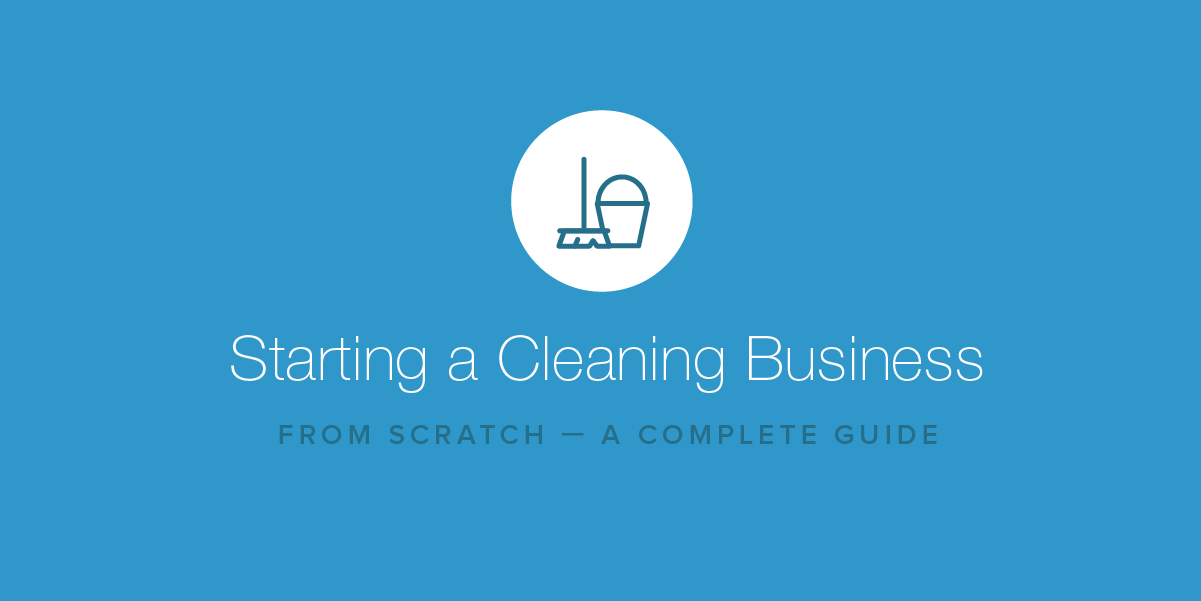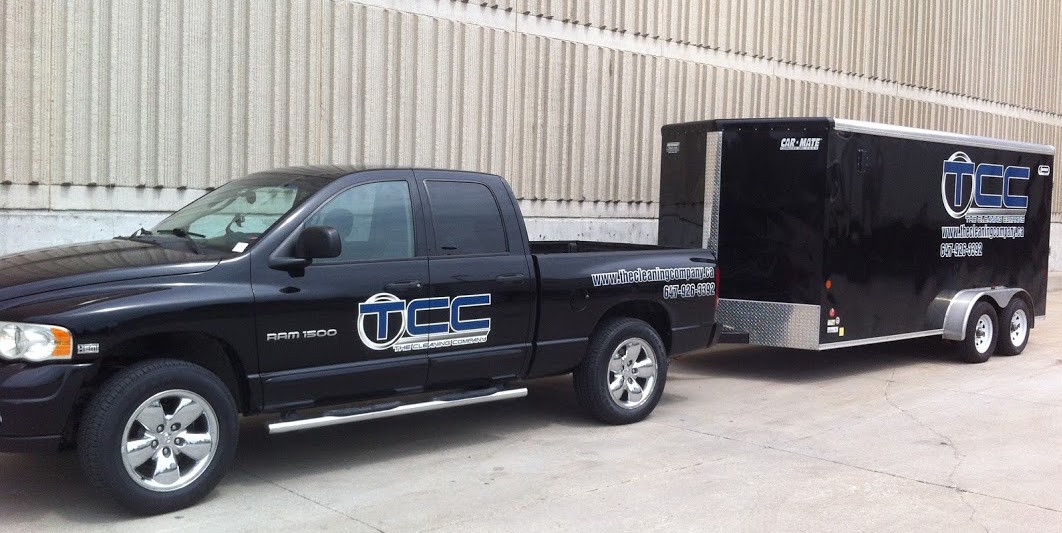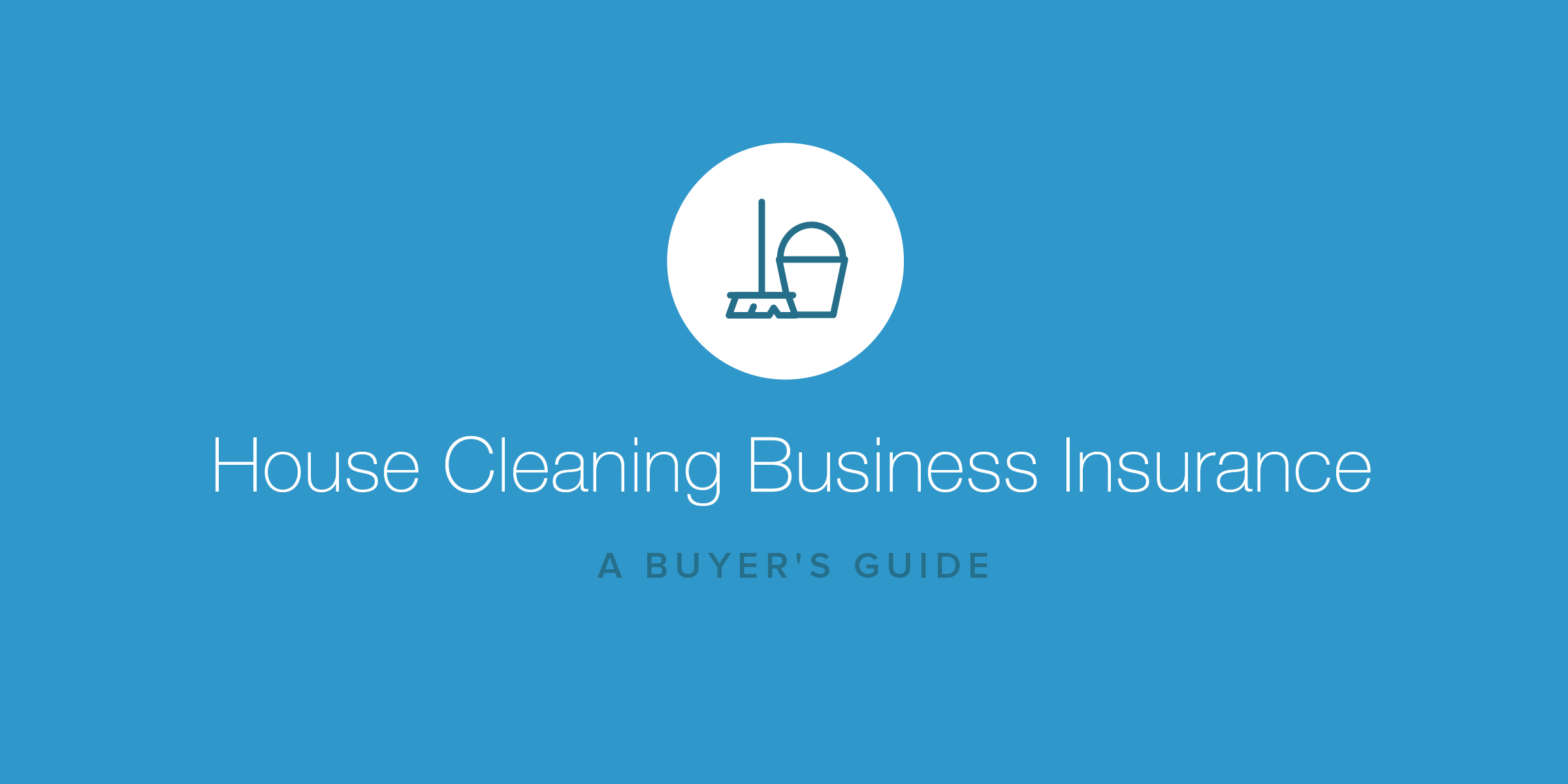How to Start a Cleaning Business from Scratch
- July 31, 2019
- By: Vonigo
In this guide, we’ll walk you through a checklist of all the basics of how to start a cleaning business from scratch.
As makers of cleaning business software, we have assisted many cleaning companies to run and grow successful businesses. In this guide, we’ll discuss the details and challenges associated with starting a cleaning business so you can be prepared to launch and grow your own!
What are the Benefits of Starting a Cleaning Business and Why Do It?
As with any other business, owning a profitable cleaning company can be satisfying. You can achieve a great work-life balance, be your own boss and make a good living, and even create jobs in your community.
So, let’s see what factors make it relatively easy to start up your cleaning business and enter the market.
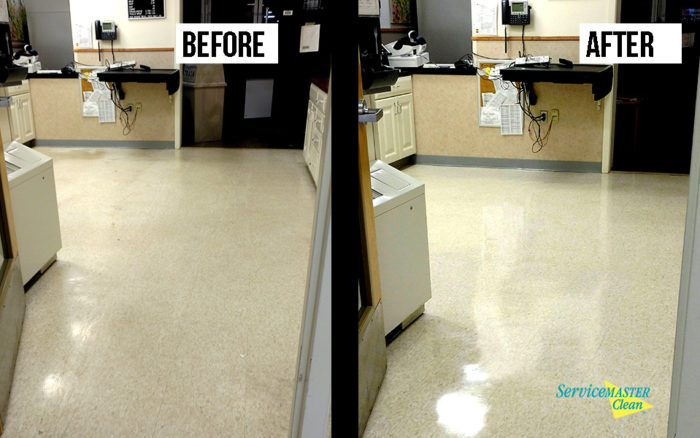
Good News: Steady Industry Growth
Globally, the industry sector is thriving with a growing percentage of businesses surviving the five-year mark. And specifically, the market for cleaning services has been hallmarked by revenue growth, wider employment opportunities and, last but not least, a low barrier to entry.
Furthermore, the industry is characterized by a comparatively quick business establishment and scope for expansion, which translates into profitability and high ROI. For example, as of 2017 in Canada, the annual revenue of cleaning companies ranged between $30,000 and $5M. This may come as no surprise; as our lives get busier, we often seek out more help around the house.
Hence, the pattern of steady industry growth has been observed in most developed economies worldwide, making this a great time to start a cleaning company.
Want to start with some inspiration? Check out these examples of great cleaning websites we gathered for you.

1. A Profitable and Versatile Service Portfolio
As a cleaning business owner, you can start, operate, and expand your service-based enterprise at your own pace. You can offer regular housekeeping at first and build up to providing various other services that require a specific skill set and professional equipment.
This also means that you can benefit from better options in terms of calculated investment risks than entering a different industry, where launching your own business means facing rigid prerequisites.
Read: 7 Things That Make Cleaning Companies Great.
Easy-to-Acquire Expertise and Equipment
Let’s admit it, cleaning is not rocket science. Even strictly specialized services can be mastered by taking various courses. Although seemingly simple, starting and running a cleaning company does require a certain set of skills and know-how.
Furthermore, the tools of the trade do not require significant financial backup nor a huge investment, which brings us to the next factor.
Getting a Fast Return on Your Investment
The potential for your business to make a profit in the first year is real if you play your cards right. On the other hand, starting your own cleaning business could end up as a disaster if you’re unprepared.
You can start your cleaning business by investing relatively little, whether you’re starting from scratch or you decide to partner with an established franchise. Make sure to grow at a pace that sees you continue to reap profits once the initial cost of your equipment (read below) is paid for.

Flexible Work Hours
Cleaning services are provided on-demand, of course.
However, these jobs don’t differ from many other trades in terms of providing services on a flexible hourly or per-project basis. Cleaning business owners can enjoy the luxury of choosing their own working hours and customizing their schedules.
Steps to Start Your Cleaning Business
In order to succeed, get your mindset into business planning mode and follow a carefully devised step-by-step business set-up process.

1. Determine Your Budget
The budget for the initial launch of your cleaning company needs to cover the expenses for permits, registration, licenses, and insurance costs.
You also need to finance the procurement of equipment, cleaning supplies, and if necessary, a company vehicle or transportation.
If you want to grow your customer base, make sure to set aside enough money for marketing and advertising. Your budget also has to cover hiring extra labor, should you need to do so, in peak season. Although seemingly a year-round source of jobs, professional cleaning comes with quite a few spikes in demand throughout the year as big holidays come and go. That’s why cleaning companies need to have a plan for handling the additional demand in case of leads coming in at an overwhelming rate.
2. Think of a Business Name
A good name is a business asset. Trying to come up with the catchiest brand name is not always the way forward. Think about what you want to stand for and deliver to your future customers.
Your own name can be a good choice, expressing synergy between the brand’s principles and your own vision. This message can really resonate with your clients’ expectations.
Read: Picking Cleaning Company Names: 5 Tips On Doing It Right.

3. Get Equipped
Choose the best industry-grade equipment and products. This naturally comes at a price, but if you browse around for a reputable guide for detergents and gear reviews, this expense shouldn’t break the bank.
Depending on what type of cleaning services you intend to offer, and whether you’ll limit yourself to the home services market or chase high-end commercial and industrial clients, you may have to invest in more sophisticated and tightly-specialized cleaning systems. Some examples:
- Ongoing supplies like detergents, gloves, overshoes, steel scourers, trash bags, sponges or cloths
- Floor & hard surface cleaning equipment
- Pressurized hot water extraction gear like carpet steamers
- Pumps and tanks for long pole and high-reach window cleaning
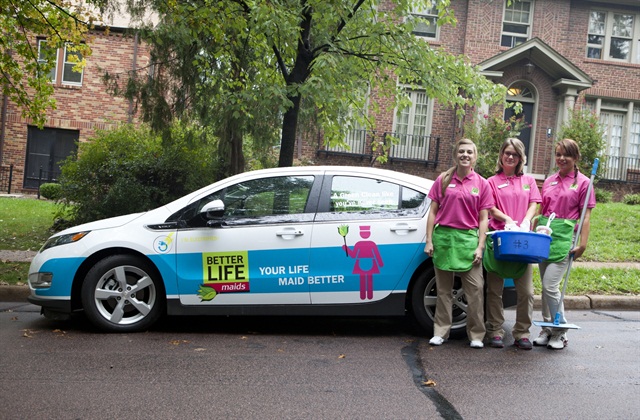
4. Cleaning Business Uniforms
You and your team’s professional and presentable look is also a key to gaining your clients’ trust and delivering a great customer experience.. Invest in quality uniforms that will serve you for a long time.
Without uniforms, your crew can look untrustworthy. Outfit your team with matching apparel though (a logoed t-shirt is a great start) and you will appear more trustworthy as well as make your brand more visible.
5. Commercial Vehicles
A reliable, good-sized, clean vehicle is a must to start a cleaning company. It’s your mobile advertisement. Brand your commercial vehicle and keep it neat and shiny so it can be an invaluable part of your marketing mix.
Read: What the Color of Your Trucks Says About Your Company.

6. Spread the Word About Your New Cleaning Business
Small startups don’t usually have the financial power to count on strong online advertising straight away. But there are low-cost, high-impact ways to promote your business that don’t have to cost you too much when you’re getting started.
Most importantly, there’s nothing better than a customer’s referral as they are the ones with the first-person experience of your service.
Read: Cleaning Business Flyers: Are They Worth the Investment?
If happy, your clients will recommend your business to their colleagues and friends. Ask your customers for reviews and testimonials, and use those reviews in your marketing — especially on social media. Word-of-mouth and referrals can be the best way to build your business — not just while you’re getting started, but all the time.
Read: Digital marketing for your cleaning business in 5 Easy steps.
7. Set Your Rates Right
Charging per hour for your work is the most common method of billing your clients as a cleaning service provider. You can easily get an insight into the current average rates in your area by checking what your competitors charge.
However, some of the specialized services are charged per area (like square footage) or per number of rooms, such as floor cleaning, deep carpet cleaning, jet washing, tenancy cleaning, and others.
Choose a simple pricing system that customers can understand. Keeping it simple will make it easier for them to choose to book with you. But be careful: a simple pricing structure still has to have profit margins for you, so make sure that your quotes and the rates you ultimately charge are still worth your time and leave some profit after expenses.
Read: How to Create a Cleaning Service Invoice that Works.
8. Customer Retention: What You Need to Know
As we’ve mentioned above, getting your first customers can be done through word-of-mouth and low-cost advertising. You may even know them personally, or they could be friends of your friends.
Read: How to Market a Cleaning Business: Email Marketing Tips.
But in order to grow your business and make yourself known, you’ll need to be one step ahead of your already busy competitors. Think strategically and endeavor to keep your customers over the long term.
- Keep your finger on the pulse – Whether you and your partner are doing the cleaning, or you’ve got a small team to cover your local area, make sure that you diligently inspect the job results and remedy any customer issues straight away.
- Customize your services – You can be professional and at the same time, offer flexibility to your service by accommodating your client’s needs with regards to their busy schedule or special cleaning requirements. A big company may simply say “We don’t do this!” — take advantage of that and your client will come back to you.
- Throw in a small bonus at the start – This doesn’t need to be done at a significant monetary expense, especially if you’re trying to juggle with your budget and you’re aiming to break even in the first few months. For instance, cleaning three windows for the price of two will cost you only 20 minutes extra of your time, and may help you make that initial sale.
- Stand out by being different – You can’t compete with large cleaning companies, but you can add a twist to your service by focusing on attracting a specific group of clients, be it the elderly or people with disabilities.
- Exceed expectations. Always strive to exceed the customer’s expectations. You can’t go wrong with that.
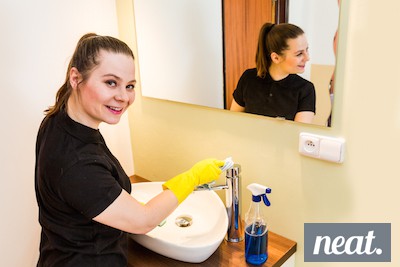
Option: Invest in an Already-Established Business
And finally, there’s an easier way to own and run a cleaning business by partnering with a well-known franchise brand. According to UK company Join Fantastic, the advantage of investing in a franchise business is that all the risks associated with finding clients, organizing jobs and marketing yourself are taken out of the equation. Instead, you pay to buy the franchise, and oftentimes also pay ongoing licensing fees.
Getting into partnership and operating your cleaning services company under a recognized and well-established brand can give you the security of turning around your investment in a much shorter time scale than if you started up on your own, from scratch.
Here’s what you can usually get in return for your initial franchise fee:
- An already working, proven business model to follow;
- Assistance with finances and equipment;
- Training support and expert advice;
- Marketing and sales support;
- Job leads and access to an existing client base;
- Access to discounted suppliers;
- Faster return on your investment;
- Fewer sleepless nights.
The Bottom Line When Starting a Cleaning Company
Start small and plan carefully how to grow your business with minimum risks by thinking out of the box, targeting the right clients, and always going the extra mile for your customers.
Or you can simply invest in a franchise cleaning business and operate with their established systems from day one. To leave marketing, customer care, and everything besides the actual trade to the franchisor can be a sustainable and profitable model.
Read: 5 Ways Cleaning Service Software Gives You a Professional Edge.
Want to learn more about how to grow and manage a cleaning company, using cleaning business software? Book a free, private demo of Vonigo.
